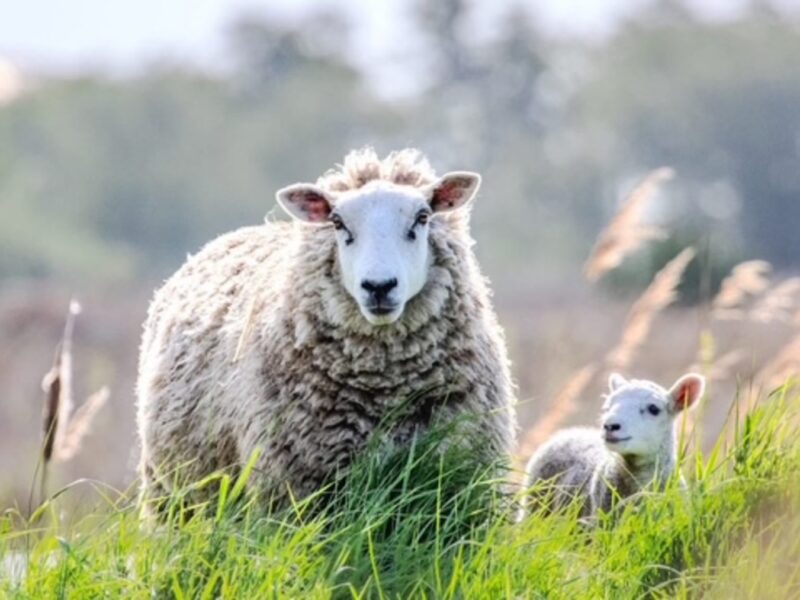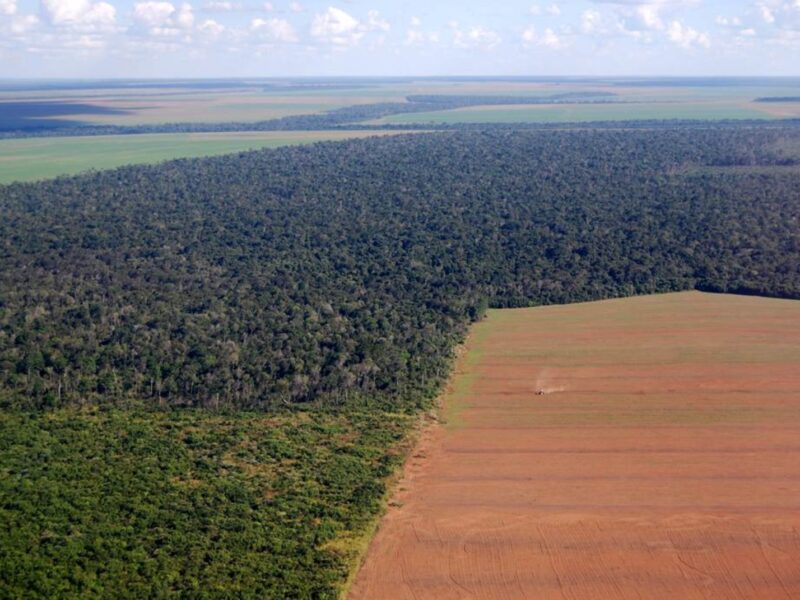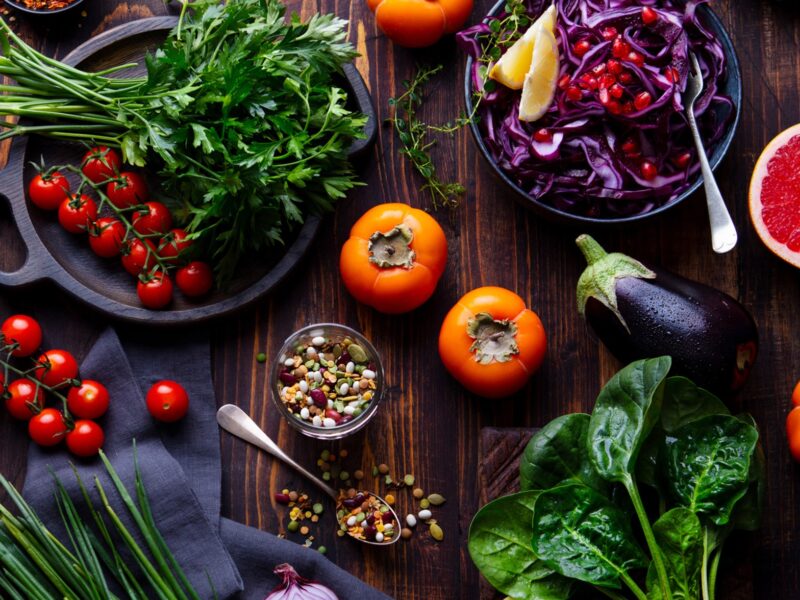
FROM STORYBOOK FARMS TO FACTORY REALITIES: WHY COMPASSION MUST LEAD THE WAY
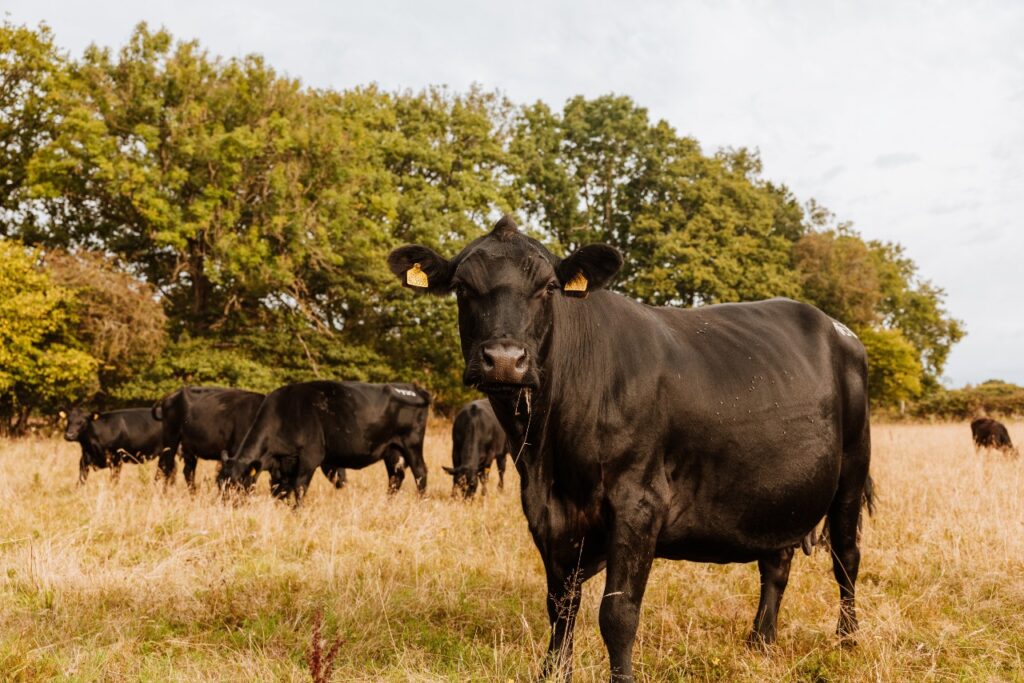
Could our food system reflect the values of kindness, fairness and respect for life?
Sunlight danced through the trees, casting shadows on grazing Aberdeen Angus cattle and foraging hens. The air was thick with the hum of insects and the land felt alive. It was a moment of harmony – animals, nature and people working together. A rare moment and one worth holding onto. A glimpse of what farming in the future could be.
Here at Planton Farm in Shropshire, the cattle live together as a family group. Calves stay with their mothers and are weaned naturally when the next calf is born. Some mothers allow older calves to continue to suckle for much longer. Maintaining family groups avoids the stress of separation and creates a natural social structure.
Planton’s free-range flock of hens are also kept in natural social groups. Made up of birds of mixed ages, these hens are regularly moved around the fields in rotation so they can forage naturally and fertilise the land. And having one cockerel for every 30 hens, means natural behaviour and social cohesion is encouraged.
It’s a wonderful sight to see a working regenerative farm, providing a blueprint for a different future for agriculture: one that puts the care of animals and nature at the heart of their mission.
It’s a scene that reminds me of the illustrations in a children’s story book. A picture of happy animals, in open fields, sun on their backs, where wildlife abounds. As it should be.
But this vision of farming is tragically rare – the animals at Planton Farm are the lucky few.
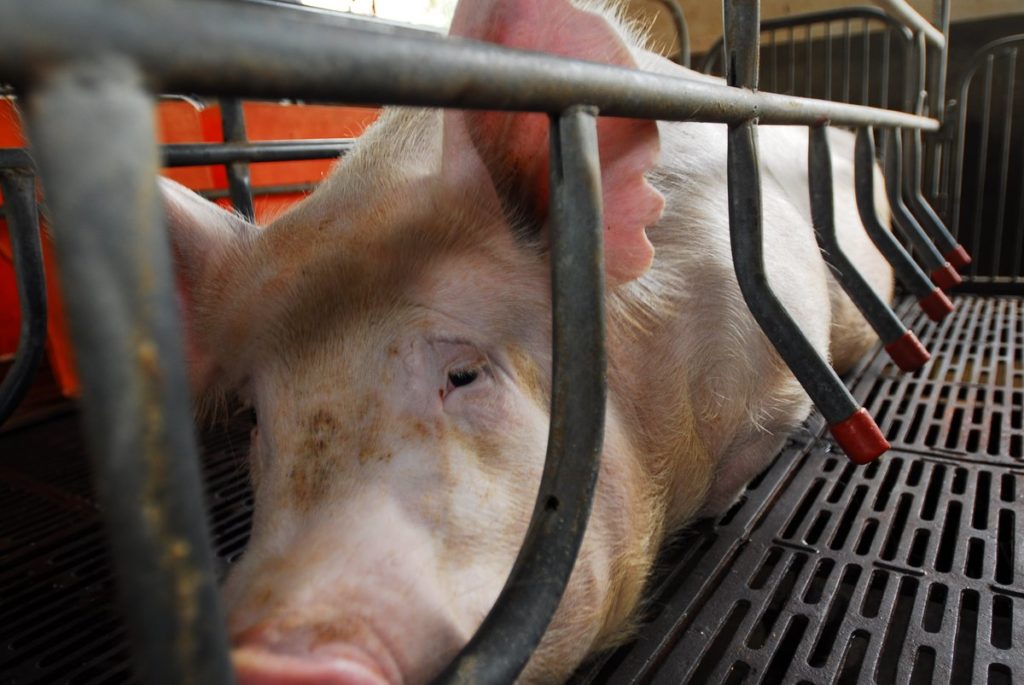
Reality
Here’s something surprising – every year, a staggering 92 billion farmed animals are reared for food. That’s over 10 billion animals for every billion people on the planet.
Of those, two thirds are factory farmed. Horrendously treated, caged, crammed and confined and unable to exhibit natural behaviours. Mutilated. Forced to grow so fast that their bodies can’t keep pace.
Make no mistake: factory farming is the single biggest cause of animal suffering on the planet. It’s a crisis that demands our attention – and our action.
The science of animal welfare recognises that good animal welfare means they have an opportunity to enjoy their lives. A ‘good life’ means that all their behavioural, physical, environmental and mental needs are met.
But on factory farms that is a sheer impossibility.
You could be forgiven for thinking that with all the suffering involved, none would go to waste. But that couldn’t be further from the truth.
Every year, the meat equivalent of 15 billion animals is wasted. Thrown away. Left to rot. It’s a tragedy that goes unseen and unrecognised. Lives wasted. Suffering for nothing.

Children and Speciesism
A few years ago research was conducted into age-related differences in the moral view of animals. It was found that children differ dramatically from adults in the way they see things about animals. Unlike adults, children say farmed animals should be treated the same as people and pets. They think eating animals is less morally acceptable than adults do.
What this tells us is that speciesism – the idea that some animals matter more than others – is not something we’re born with, but that we learn. Perhaps that’s why our relationship with animals often shows double standards. Some animals are beloved household pets. Others are kept on factory farms. Judgements seem to depend largely on the species of the animal in question: dogs are our family companions; pigs are our food – despite them being just as intelligent as each other.
There’s never been a more important time for the healing power of compassion and kindness for all species. However, factory farming of sentient animals is on the increase. But it doesn’t have to be this way.

Challenges
Ending industrial animal agriculture and reducing meat overconsumption – especially in regions like the UK, Europe and America – are essential steps toward genuine sustainability. But there’s no quick fix. Decades of misguided policies and subsidy regimes have entrenched a broken food system.
What’s more, ‘cheap’ meat isn’t really cheap. We pay for it three times. First at the supermarket checkout, the second through our taxes that go into farm subsidies that drive agricultural industrialisation. And thirdly through the clean-up cost to our health and the environment.
When we add it all up, cheap meat is expensive.
What we can do about it
What if our food system reflected the values of kindness, fairness and respect for life?
Well, it can. As Planton Farm and other pioneers of a regenerative, nature-friendly farming future show.
Each of us has the power to play our part in creating that better, more compassionate world for all. Through the choices we make about the food on our plates. By choosing pasture fed, organic and regenerative meat and dairy products. In this way, we can build a future where farmed animals can graze and roam on pastures – so important for their welfare, for wildlife and for the health of soils. Planton is a wonderful example of a farm that puts regeneration of nature and animal welfare at its heart.
Our children already understand the essential principle: kindness to all life. By choosing food that respects animals and the planet – we can build a future rooted in compassion. Let’s follow their lead.
If you have been moved by this article please do consider joining us at Compassion in World Farming, thank you.
Note: This is a version of an article that was first published in The Scotsman on Friday 31st October, 2025


